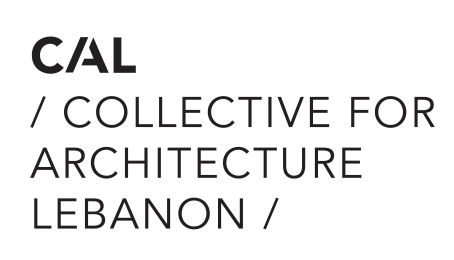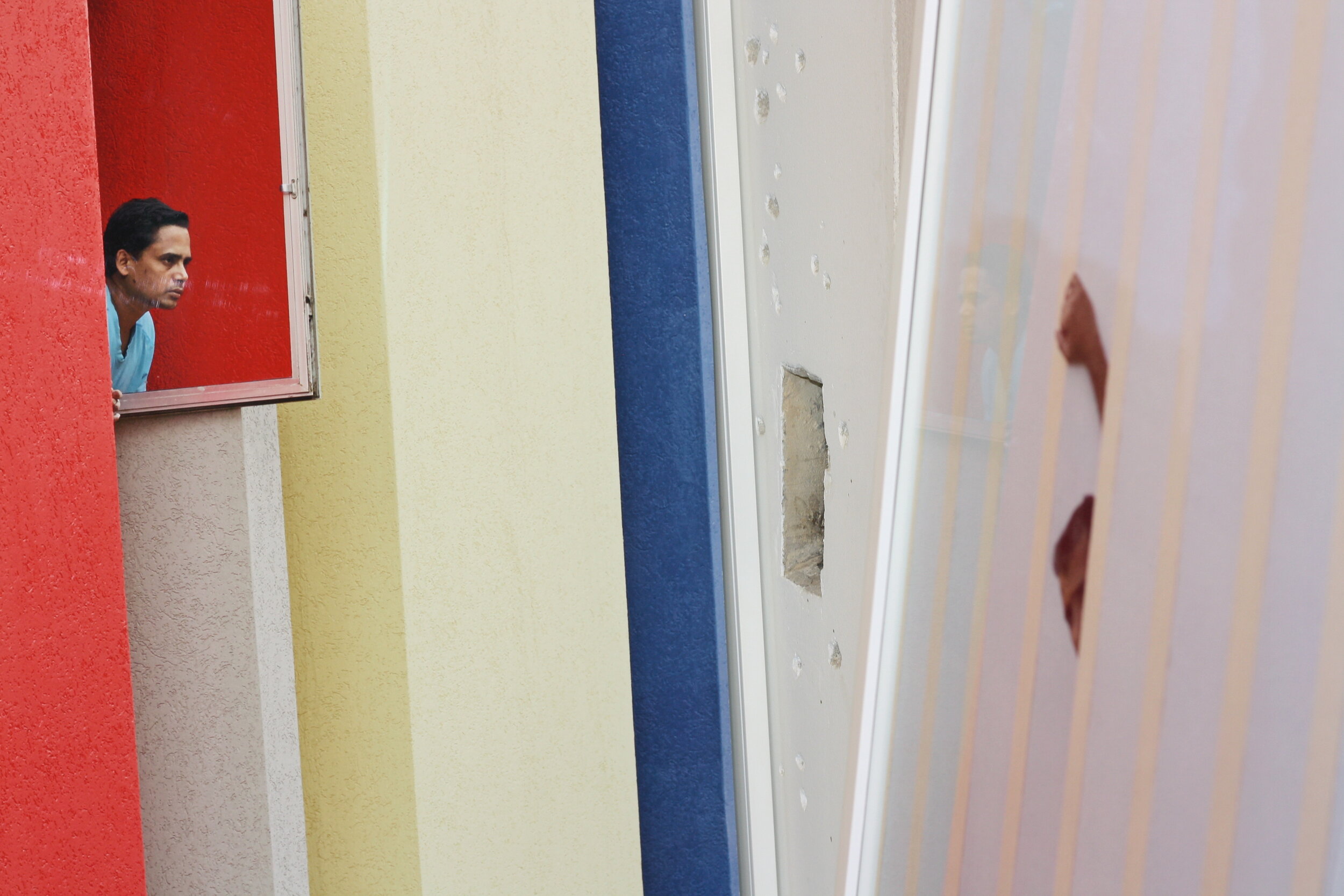ABOUT OMRAN
OMRAN’19 is the first edition of an Architectural Forum organised by the Collective for Architecture Lebanon (CAL). It took place at the Beit Beirut Museum and AUB, under the patronage of the Municipality of Beirut from August 21 - September 11, 2019.
OMRAN’19 featured an exhibition and a two-day conference around the year’s main theme
Architecture of the Territory: the paradoxical relationship of the state and its territorial planning.
EXHIBITION
21 August to 08 September at Beit Beirut, Sodeco, Beirut
OMRAN’19 featured an exhibition and a two-day conference around this year’s main theme "Architecture of the Territory". It brought together various stakeholders that contribute to the architectural, planning, historical, social and political discourses in Lebanon. The Forum triggered debates and conversations about the urgency to rethink Lebanon’s national territory planning and its impact on the nation’s present and future. The national plan needs to be rethought as there is a lack of proper distribution of capital, rampant inequality, lack of peripheral development, centralisation around Beirut, political and social confessionalism, outdated power sharing systems. All of these issues negatively impact the planning discourse in Lebanon, to the extent that Lebanon and Beirut are considered ‘unplanned’ – How does OMRAN respond to this?
Academic work, research projects, photography, and installations were part of the exhibited material, belonging to alumni, students, institutions, organisations, photographers and artists. Presentations on their work to the public formed a central part of the ensuing conference.
The exhibition showcased 31 academic projects, the work of 7 photographers, and various studies from 11 institutions, organisations and artists.
EXHIBITION PROBLEMATICS
Problematic 1: SECULAR FREE ACCESSIBLE SPACES
In a context where the sectarian enclave is the prevalent urban form, how can the state provide public spaces that act as social and urban unifiers?
How can the state, through private stakeholders and public/private partnerships, strategise and implement different forms of secular/free/accessible spaces?
Problematic 2: INFRASTRUCTURE NETWORKS + PRODUCTION SPACES
The lack of proper resource management and implementation strategies for political legislation surrounding transport and mobility are recurring conditions of formerly colonised territories. Exemplified by the lack of state functionality, these often lead to poorly constructed infrastructural systems, and rampant territorial disorganisation.
What are the strategies through which post-colonies can implement proper resource management by re-thinking the relationship between spaces of production, spaces of trade, and infrastructural networks?
Problematic 3: DOMESTICITY
There is flagrant absence in state agency towards the provision of much-needed social and public housing. In essence, this is the result of an uncontrolled production of domestic space that has polarised the housing market between unregulated/illegal housing settlements and market driven private developments. These strategies often favor political feudalism and the creation of empty, highly securitised gated communities.
How can alternative housing schemes and typologies challenge the current profit driven production of houses? Moreover, how can they be used to create more inclusive, sustainable cities?
CONFERENCE
Dates - 30 & 31 August
10.00 to 17.00
Location - Munib and Angela Masri building, Engineering Lecture Hall, AUB
The conference included international key speakers, and members from the public and private sectors, and academia, to further discuss the main questions posed by the territoriality of architecture.
DAY 1 - 30.08.19
Round 1
GLOBAL & LOCAL
Cities in our region have undergone violent morphological changes as a result of war, violent master planning, introduction of alien urban forms and universal architectures. Through these changes they have lost the urban, domestic and cultural typologies that defined their form and their ability to generate the framework that produced the societies that inhabited these cities. What are the strategies through which we can rethink an architecture that intersects the local and the global broadly defined? How can these intersections impact the city?
Moderator – Ala Tannir (Architect and Curator, Broken Nature)
10.00 Keynote Speaker Lecture (45 min)
[ADRIAN LAHOUD] / Dean of Architecture at the Royal College of Art, London
10.45 Q&A with the Keynote Speaker (15 min)
11.00 Exhibitors Presentations (30 min)
[Ieva Saudergaitė (Photographer) / Rebecca Assaf (USEK)]
11.30 Round Table Conversation (30 min)
with [Robert Saliba (AUB) / Marwan Zouein (LAU) / Tarek Zard (Zardman) / Mireille Abi Nasr (FFA)]
12.00 Q&A with the audience (30 min)
12.30 Lunch Break
Round 2
PUBLIC SPACE & DOMESTICITY
Typologies are defined by domestic life that is shaped by locality. The configuration and production of domestic space in regional cities has faced constant change and adaptation that correspond to how these cities have grown and adapted their functionalities. What was once a diverse spectrum between public and domestic spaces has been altered by economic forces and the inability of the state to come to terms with the need for public space. How does public life manifest itself in the urban? How can we revitalise public life in saturated and over-densified cities, dominated by neo-liberal policies?
Moderator – Ali Khodr (AUB)
14.00 Keynote Speaker Lecture (45 min)
[FRANCISCO GONZALEZ DE CANALES] / Professor at the Architectural Association, London
14.45 Q&A with the Keynote Speaker (15 min)
15.00 Exhibitors Presentations (30 min)
[Lyne Jabri (Lil Madina) / Sera Saad (Alba) / Edouard Souhaid (ESA)]
15.30 Round Table Conversation (30 min)
with [Habib Debs (Urban Planner) / Jessica Chemali (NAHNOO)]
16.00 Q&A with the audience (30 min)
16.30 Drinks
DAY 2 - 31.08.19
Round 3
INFRASTRUCTURE/RESOURCES & PRODUCTION SPACES
Infrastructure is one of the most present physical paradigms of a State’s power and control over a territory. It allows the distribution of resources, and the development of the economy. The space of production in itself depends on extensive infrastructural investment, the stability of the state, and the presence of capital, more increasingly provided through international neo-colonialism. Can nation-states find alternative strategies to develop systems through which a cohesive territorial planning can be implemented? What are the effects of these alternative strategies on the urban, and the its modes of production?
Moderator – Ali Khodr (AUB)
10.00 Keynote Speaker Lecture (45 min)
[JEAN-PHILIPPE THENOZ] / Vice President of CMA CGM
10.45 Q&A with the Keynote Speaker (15 min)
11.00 Exhibitors Presentations (30 min)
[Elias Tamer (AA) / Shereen Doummar (AA) / Francois Nour (IAAC)]
11.30 Round Table Conversation (30 min)
with [Youmna Tamer (Dali Cosmetics) / Nabil Itani (CDR)]
12.00 Q&A with the audience (30 min)
12.30 Lunch Break (60 min)
Round 4
THE ROLE OF THE ARCHITECT
Architecture as a discipline, and a practice, is in a state of crisis. The architect’s role is constantly changing due to globalisation and a very competitive market that has driven the profession to reinvent itself and to rely less on the mere built environment. It is crucial for them to step out from only construction and go through a more polyvalent approach to offer an alternative mode of existence. How important is the agency of the architect/planner in propagating social and urban change? How can inclusive and socially-just policies provide alternative means for the dissemination of architectural practice? How can architectural/urban practices and policies inform the production of urban, social and domestic space beyond the capital investment?
Moderator – Samer Schinder (AUB)
14.00 Keynote Speaker Lecture (45 min)
[ABIR SAKSOUK SASSO] / Architect and Urban Planner, Public Works Studio
14.45 Q&A with the Keynote Speaker (15 min)
15.00 Exhibitors Presentations (30 min)
[Fadi Mansour, Roula Khoury and Candice Naim (Think Housing Winning Team) / Ali Khodr (MIT) / Hala Layssi Stouhi (LAU)]
15.30 Round Table Conversation (30 min)
with [Bernard Mallat (Bernard Mallat Architects) / Mona Hallak]
16.00 Q&A with the audience (30 min)
16.30 Drinks
KEYNOTE SPEAKERS
ADRIAN LAHOUD
Adrian Lahoud is Dean of the School of Architecture at the Royal College of Art London. His work critically examines concepts of scale and shelter in architecture in light of emancipatory urban and environmental struggles, focusing on the Middle East and Africa. He was Research Fellow on the Forensic Architecture project and head of the MA Research Architecture at Goldsmiths University. He has also led urban design programmes at the Architectural Association and University College London. Recent publications include: ‘The Mediterranean: A New Imaginary’ in New Geographies, Harvard University Press; ‘The Bodele Declaration’ in Grain, Vapour, Ray: Textures of the Anthropocene, MIT Press; and ‘Nomos and Cosmos’ in Supercommunity, MIT Press.
FRANCISCO GONZALEZ DE CANALES
Francisco González de Canales is Professor of Architectural History, Theory and Composition and a unit master at the Architectural Association since 2008. González de Canales studied architecture at ETSA Seville, ETSA Barcelona and Harvard University, and worked for Foster + Partners and Rafael Moneo before establishing Canales & Lombardero, an award winning office based in London and Seville. From 2002 to 2007 he got the FPI and La Caixa scholarships, which helped him to develop his own research interests at the University of Seville, UNAM, Catolica de Chile and Harvard University, where he received the Dimitris Pikionis Award in 2007. He has been teaching Fellow at Harvard University and The Boston Architectural College, visiting professor at the Instituto Tecnológico de Monterrey and City University of London. He has published more than 30 articles in academic journals of his field, and among his recent books are First Works (2009, with B. Steele), Experiments with life itself (2012), Rafael Moneo: A Theory through Practicing (2013), Rafael Moneo: Building, Writing, Teaching (2015, with N. Ray) and Politics and Digital Fabrication (2017, with N. A. Lombardero)
JEAN-PHILIPPE THENOZ
Graduate of the University of Aix en Provence in Political Science and Law and having a DEA in Geography, Jean Philippe Thenoz started his career in the shipping industry in 1981 at NAVITEC (Paris) as Charter Broker in charge industrial projects and heavy packages. He then joined Compagnie Compagnie des Chargeurs Réunis (Paris) as Director of Europe / Far East Lines. Recruited in 1985 by CMA CGM to assume the responsibilities of Line Director on several trades including the Mediterranean zone, the Middle East, Asia and Europe, Jean-Philippe Thenoz later held the position of Central Group Director of the North American lines, including the Transpacific, Transatlantic and India / USA markets. In January 2013, the Group Management entrusted him with the responsibility of the CMA CGM agencies network worldwide (163 to date) and appointed him as Central Director Group Network Agencies, recently renamed in March 2016, after the integration of the CMA CGM branch network, Major Accounts, Commercial and Agency Network Management. In March 2017, Jean Philippe Thenoz took charge of the Group's numerous development projects, directly attached to Rodolphe Saadé, newly appointed Managing Director. In October 2017, Jean Philippe Thenoz took the lead in short lines in Marseille (SSL Med and SSL North) that Rodolphe Saadé asked him to recast into a large Intra Europe pole (including Mac Andrews and Containerships).”
ABIR SAKSOUK-SASSO
Abir Saksouk is an architect and urban planner. She has been involved in several research projects in Lebanon, including the history of informal suburbs, the social production of shared spaces in the city, and more recently housing rights and tenants claims in Beirut. She is interested in exploring how community engagement could be employed in planning and actively shaping the future of cities. She is co-founder of Dictaphone Group (2009) and Public Works Studio (2012).


































